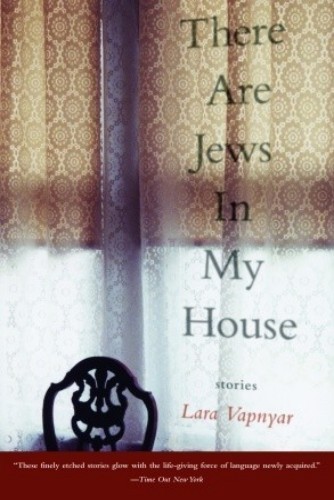
There Are Jews in My House
کتاب های مرتبط
- اطلاعات
- نقد و بررسی
- دیدگاه کاربران
نقد و بررسی

Starred review from October 6, 2003
Whether set in Vapnyar's native Russia or in her adopted New York, the six understated stories in this debut collection are beautifully crafted and unswerving in their exploration of human frailty. Friendship shades into resentment and then betrayal in the title story, in which Galina, a Russian librarian in a small Nazi-occupied town takes in her best friend, Raya, a Jewish woman with an eight-year-old daughter. As time passes, Galina nurses an increasing number of petty grudges, until she considers going to the Nazi authorities, practicing her small stock of German: "Es gibt Juden in mein Haus
." A final shock reveals to her the terrible transformation she has undergone. On a lighter note, "Love Lessons—Mondays, 9 a.m." is about the struggle of an inexperienced young teacher ("I wasn't a virgin. Or at least I hoped I wasn't") to teach a sex education class; she relies on her Aunt Galya's explicit stories for firsthand advice she passes off as her own. In "Mistress," a boy and his grandfather, recent immigrants from Russia living in Brooklyn, escape the scrutiny of the boy's nagging grandmother by losing themselves in study, the boy in his schoolbooks and the old man in English lessons. On a walk together one day, they encounter one of the grandfather's classmates, and a word the boy has uncomprehendingly heard gains new meaning. Vapnyar only learned English after moving to New York from Russia in 1994, but her deft, subtle way with language is as remarkable as her wry, knowing character portraits. (Dec. 2)
Forecast:
Vapnyar's classical sensibility is far from the scrappy postmodernism of Aleksandar Hemon, but both are standouts as self-taught writers of English (Vapnyar supposedly learned the language by watching television and reading Jane Austen and Alice Munro),
and both provide idiosyncratic takes on the former Communist world. As a result, they will likely be compared in reviews, and Vapnyar might attract some of Hemon's readers.

























دیدگاه کاربران